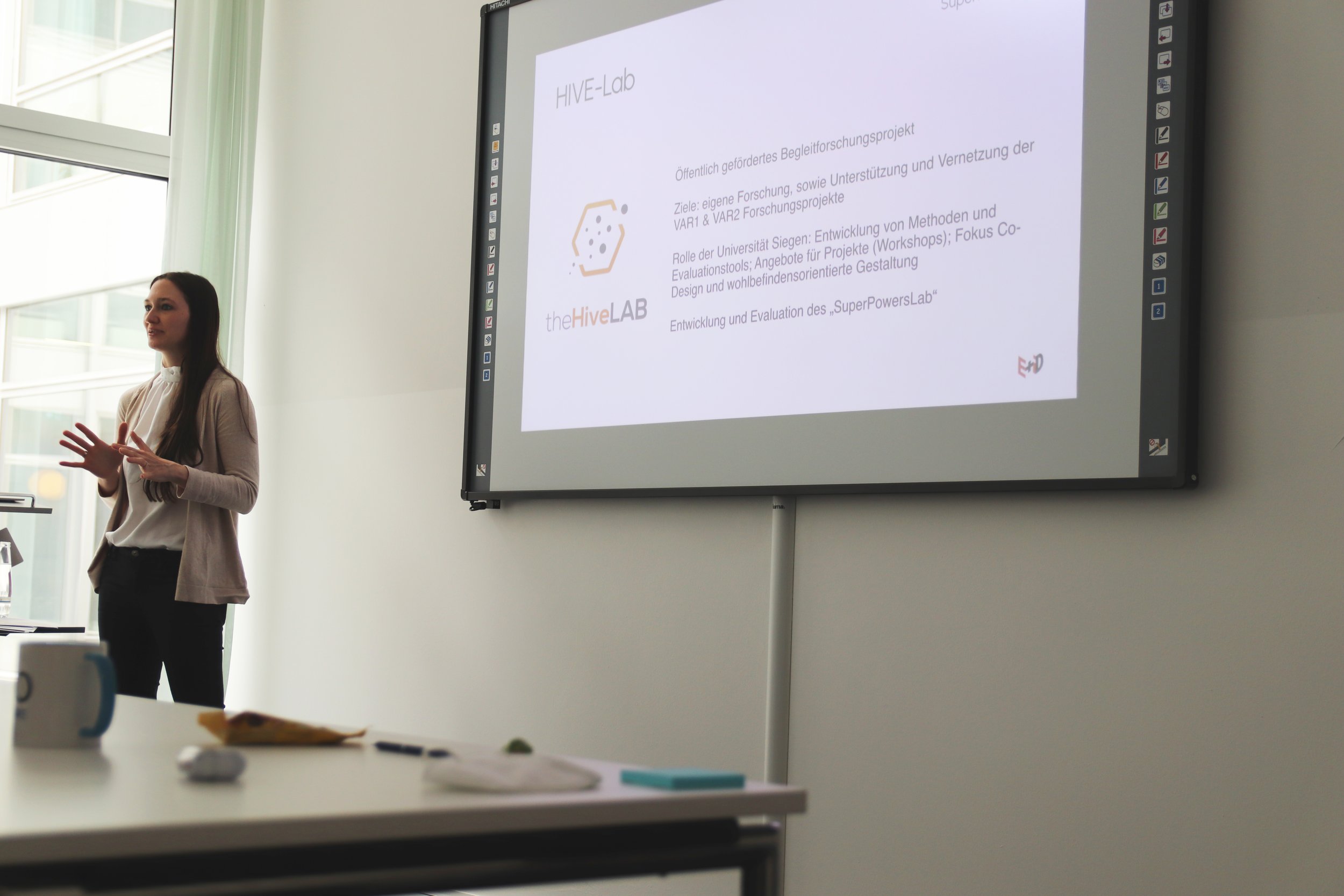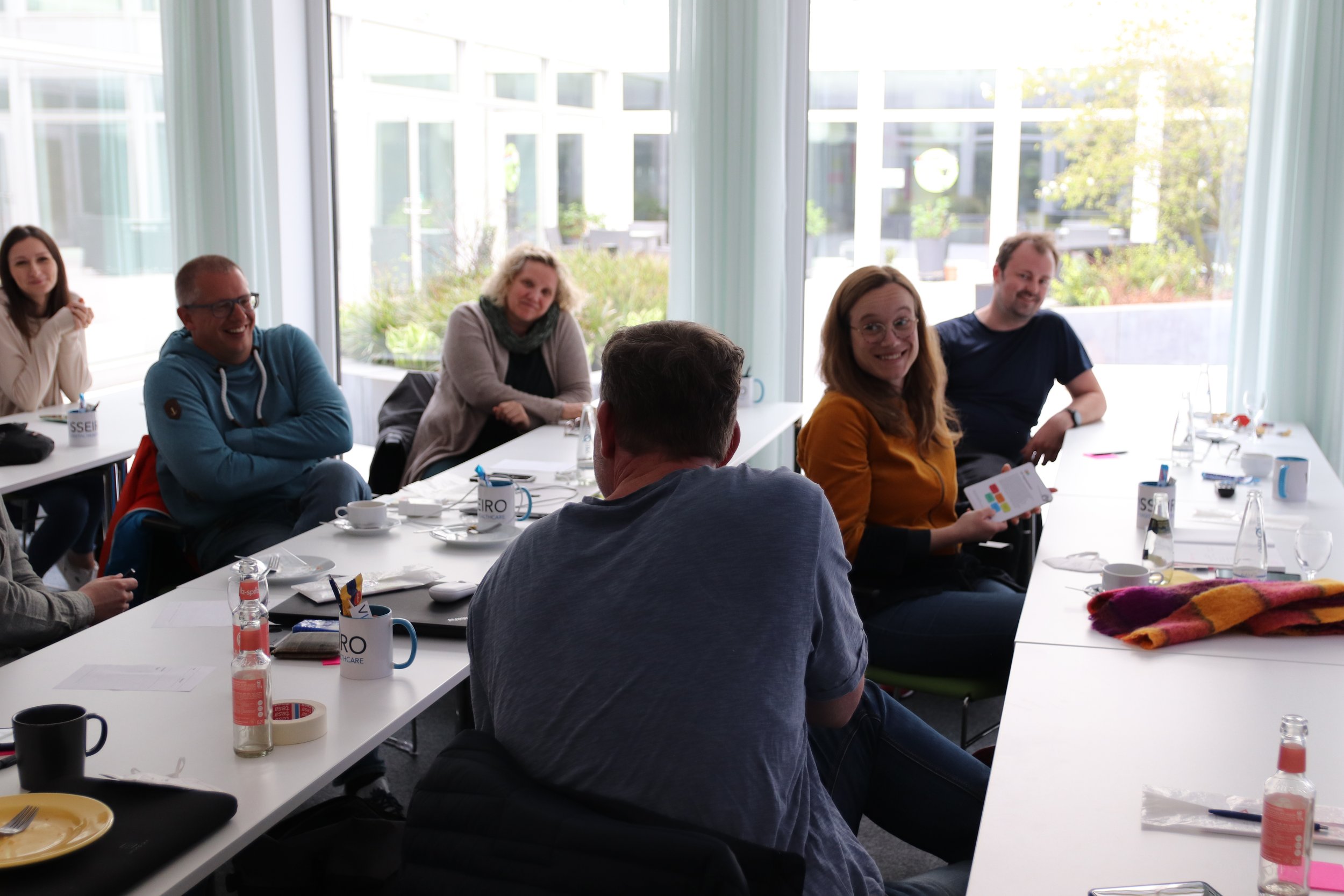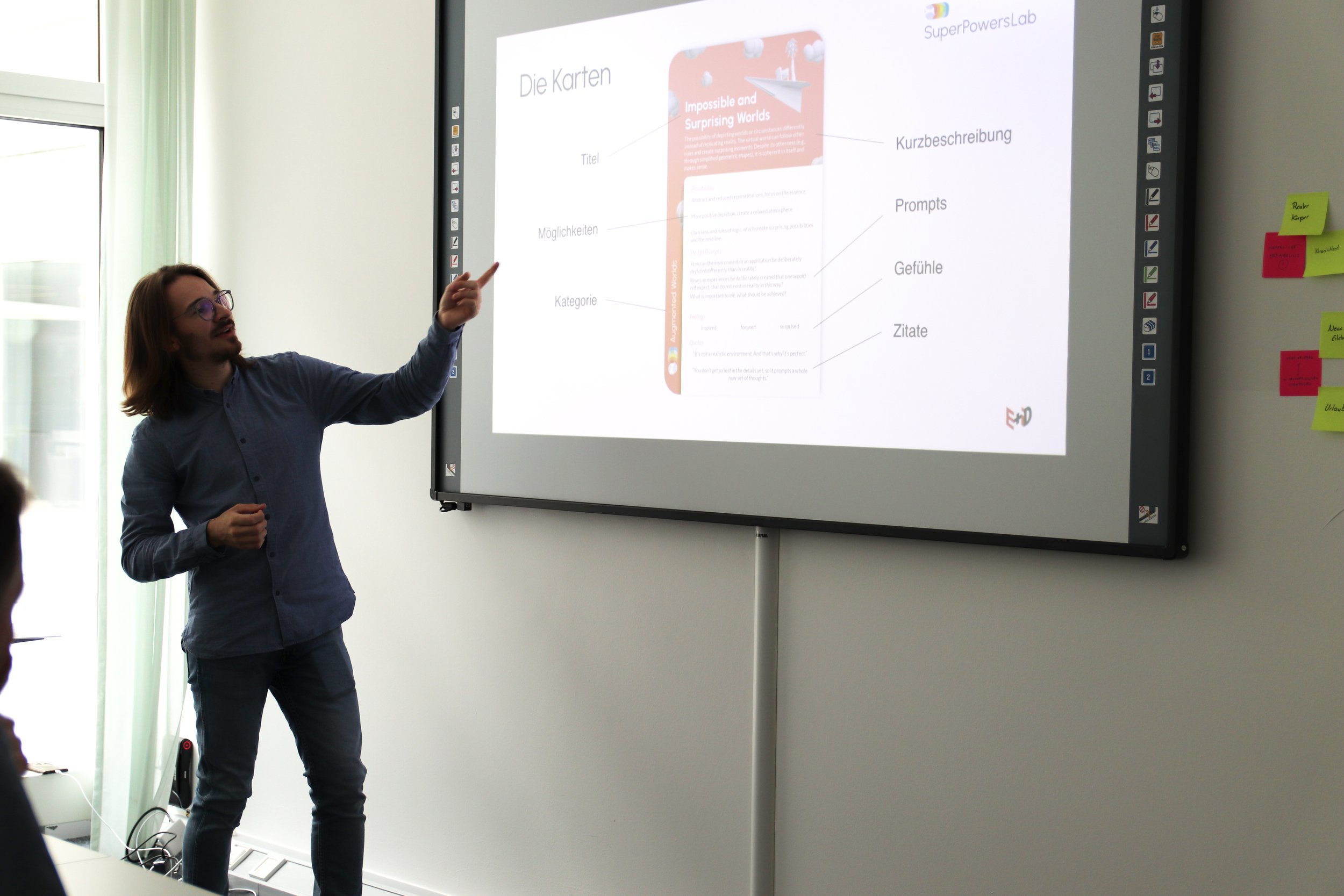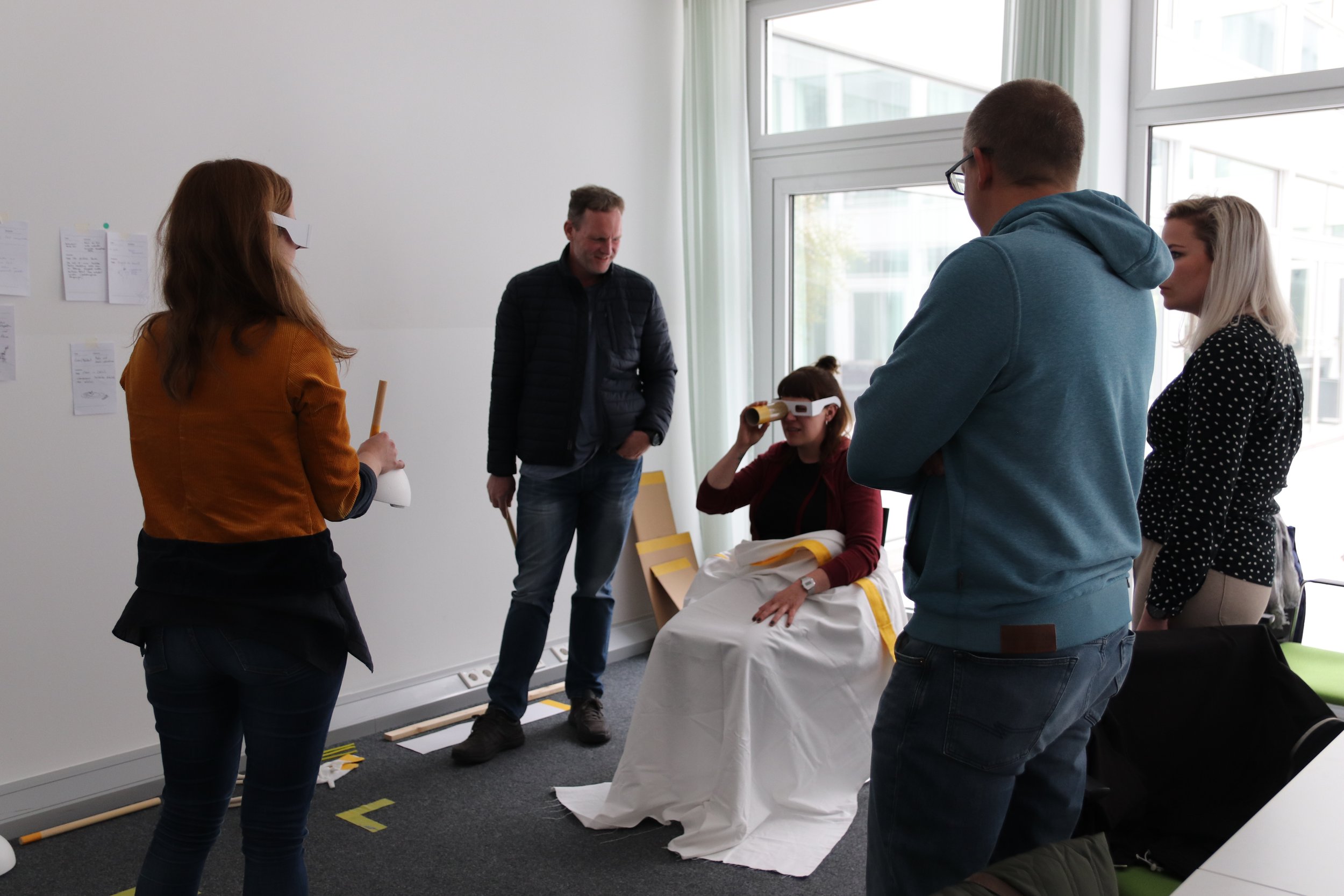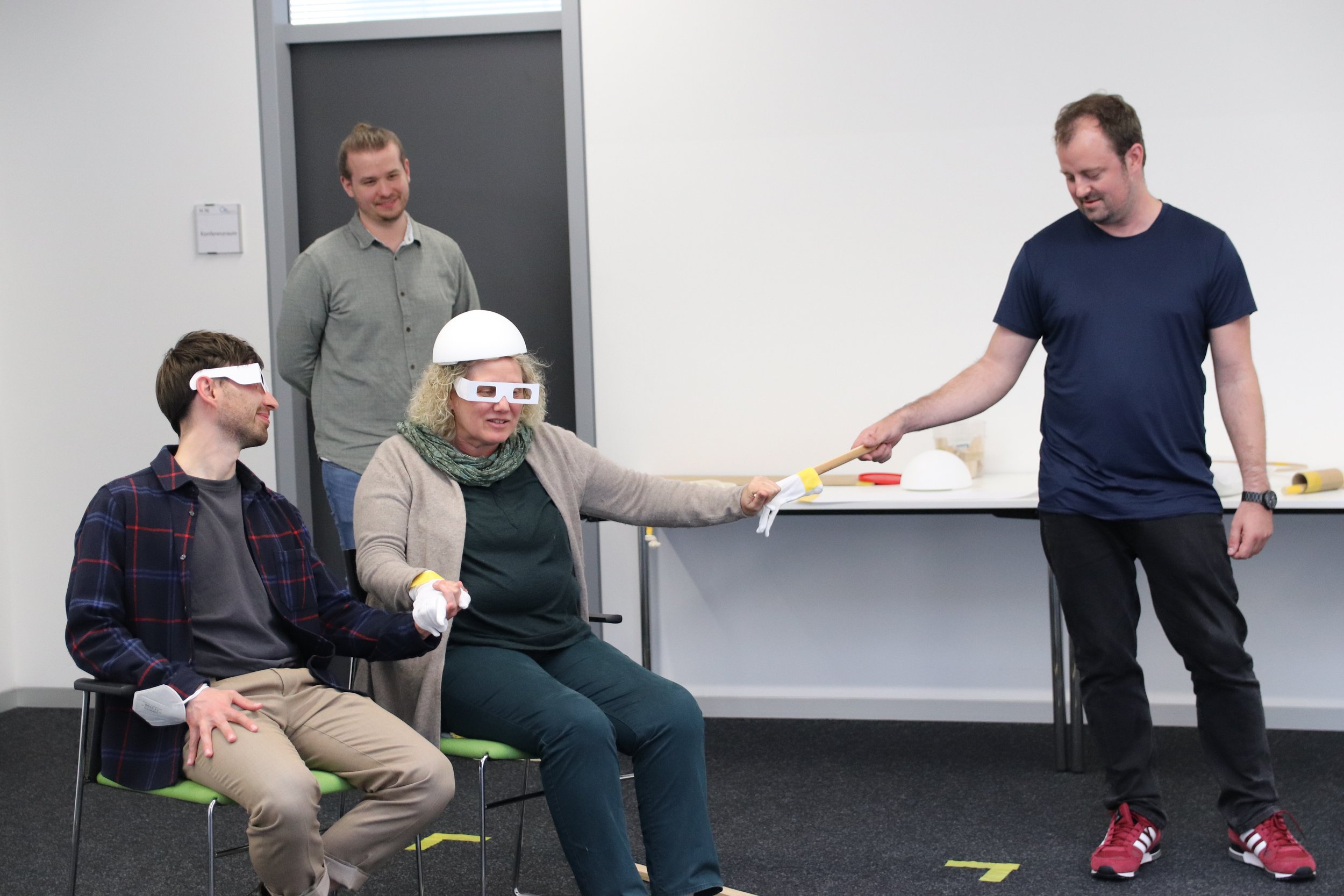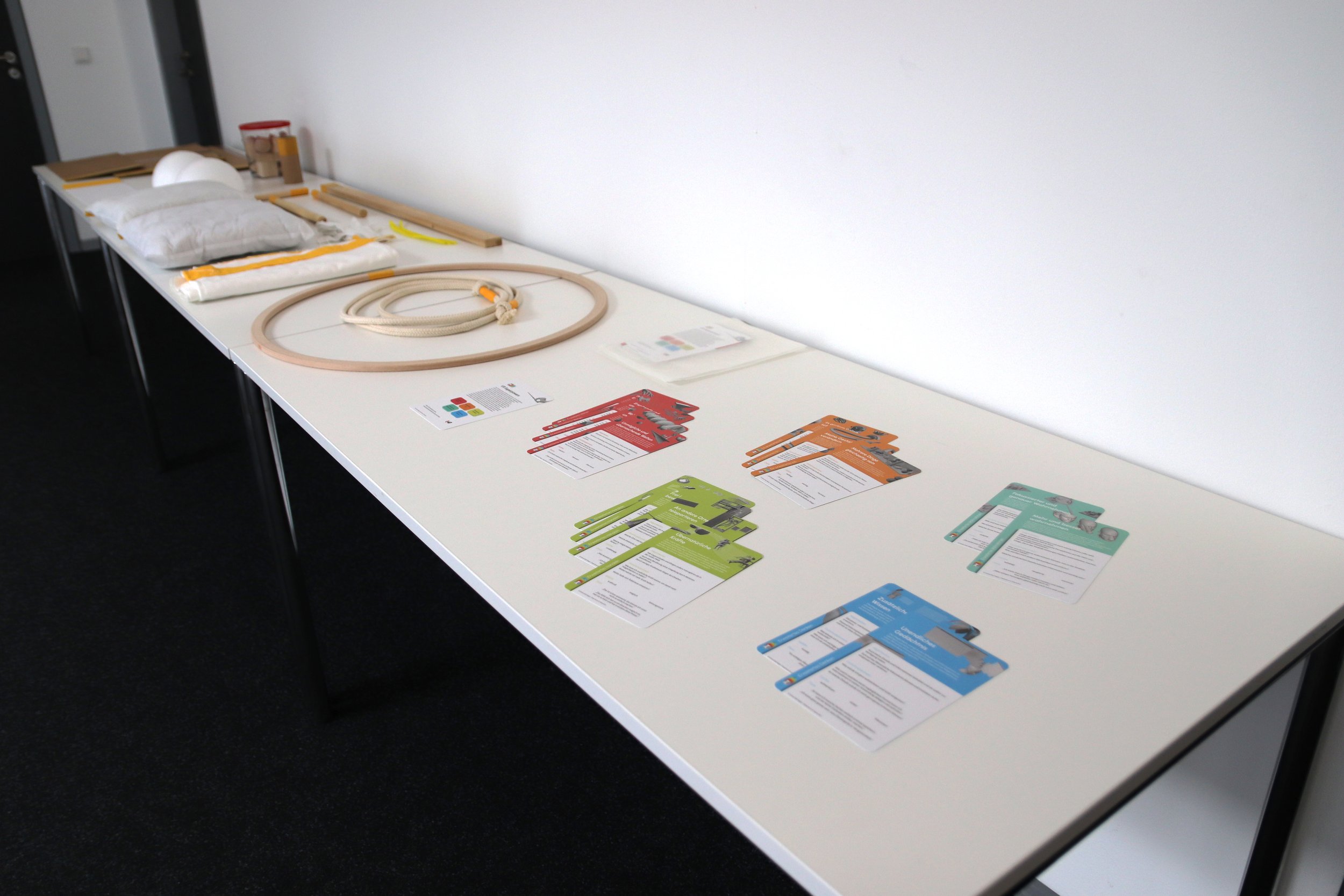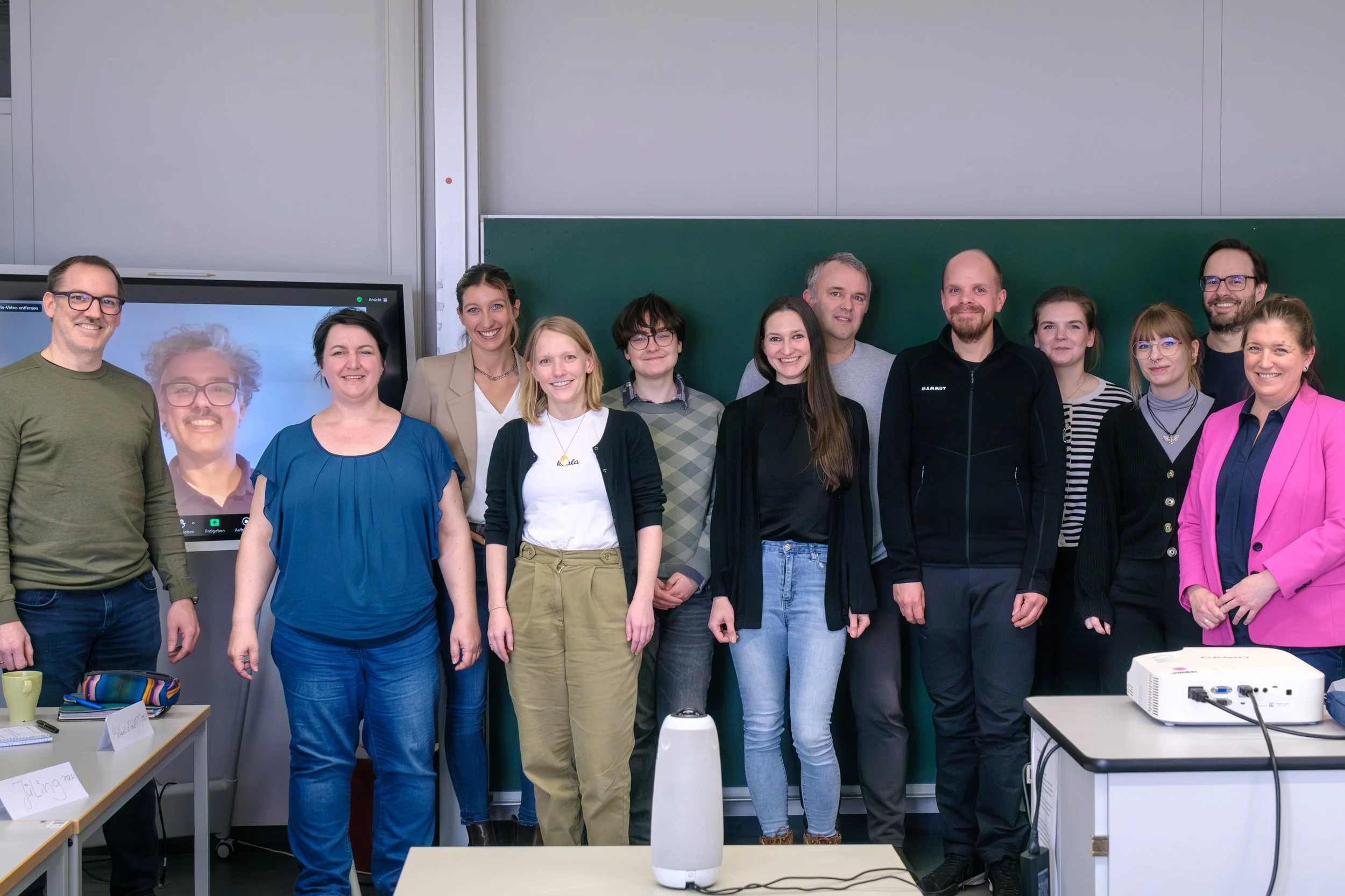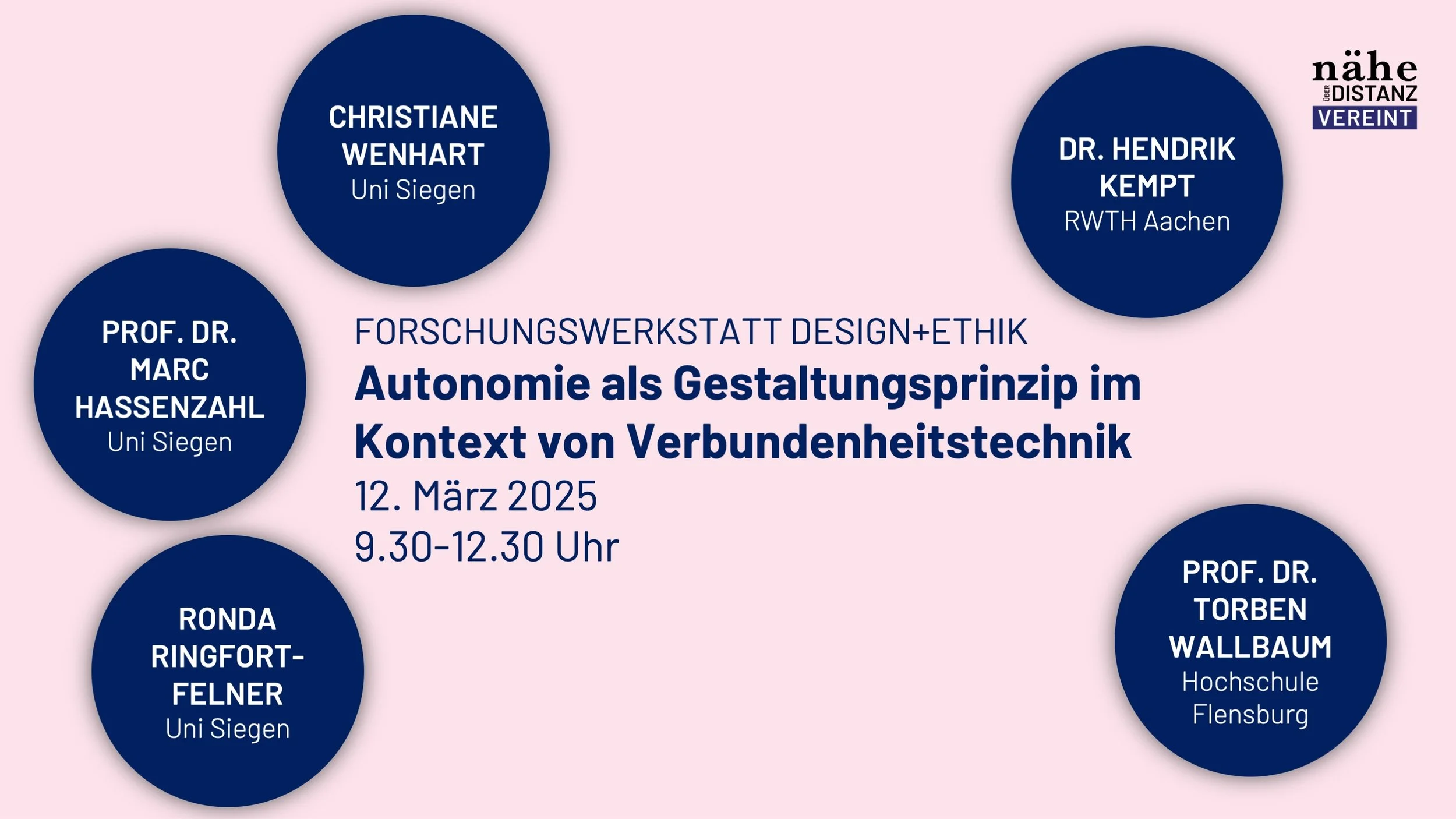SuperPowersLab workshop with project ZEIT in Berlin
On the 20.04.2022, we held a SuperPowersLab workshop in Berlin with members from project ZEIT. Ronda Ringfort-Felner and Robin Neuhaus conducted the four-hour workshop as part of a consortial meeting of the ZEIT project – meaning members from all project partners participated. Over the course of the workshop, we gathered valuable insights, presented the concept of the “VR superpowers” (a design approach for VR applications explicitly putting the unique augmenting opportunities of virtual spaces first, instead of mimicking reality), ideated plenty of concepts, and took first steps to define the favorized concepts better in enactments.
The ZEIT project is looking to create immersive relatedness experiences using VR technology and additional haptic elements. Specifically, they want to enable children and grandchildren to spend time with their grandparents in virtual environments – for example, by reminiscing about the past or enjoying shared experiences.
At the beginning of the workshop, we elaborated and defined the scenario of the project together. Here, participants were asked to share their thoughts and expectations. Once the scenario was explained and the central viewpoints documented, the participants silently brainstormed and collected insights about practices and experiences of positive moments spent with grandparents or children/grandchildren. After presenting, discussing and clustering the insights with everyone, we introduced the concept of VR-Superpowers. The method and accompanying superpowers were clarified to help the participants foster new and unique concepts based on the previously gathered insights. Here, we also presented the superpowers card set which we especially designed for workshops. The card set describes different VR-Superpowers. Together with the insights, the cards were then used in two quick speed ideation rounds, in which the participants were split into teams of two to generate concepts. The teams presented their concepts; they were collected and thematically clustered.
In the next phase, the most promising concepts were further defined in an enactment phase. Here, the participants split into two groups and enacted how the ideas would unfold if they had already been realized. They could choose from an assortment of materials (so called ‘open probes’) in order to make a chosen concept come to life. The focus was to have the participants simulate the different superpowers and generate more detailed insights into their design or into the ensuing experience and related feelings. Each participant in the group took on a specific role (e.g., grandparent, child) and visualized themselves within a future VR environment. Once the groups played out their enactment, they presented their idea and the overall positive and negative experiences of simulating the concept using the method. The enactments led to many useful insights about how the future VR application has to be designed. Questions about which augmenting superpowers the application should grant its older and younger users, as well as the potentially ensuing experiences, were not only theoretically discussed, but tangibly explored in the role-plays.
Wrapping up, the developed concepts were reflected and discussed with reference to which aspects could find their way into development quickly. Overall, the pleasant and inspiring workshop produced plenty new insights and perspectives for everyone involved. We want to thank Visseiro for hosting the workshop, and the entire project ZEIT for their openness to try this new method and the many pleasant and enriching discussions and exchanges.

